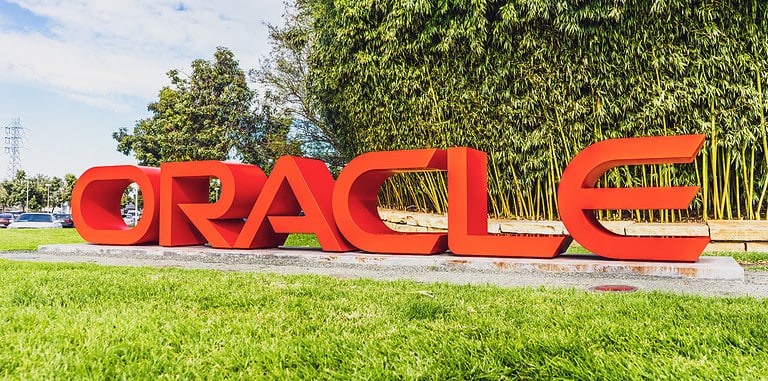Oracle has multiple large AI projects. The company finds generative AI appealing as well. Yet Oracle does not seem to be entering the race for the best AI chatbot, as OpenAI, Microsoft and Google do. Oracle is looking at different strategies. It provides the underlying infrastructure for AI and is betting primarily on specialized generative AI.
We recently spoke with Richard Smith, vice president of technology EMEA at Oracle, about Oracle’s vision and strategy around AI and generative AI. That’s what many tech giants are currently working on. We spoke to him the week that many companies and high-profile people were calling for a six-month pause on AI development. So we asked him what he thought of that pause.
Smith commented, “I don’t know if a pause will help. At Oracle, we’ve been using AI for a long time. Above all, we need standards that set boundaries and limit an AI because without those boundaries, risks arise.”
He cites the example of how impressionable the new AI models are and the risk that poses. If those new AI models read often enough that the sky is green, they will believe that. If you extend that to the healthcare industry and introduce wrong data, wrong decisions quickly follow. The outcome can be a disaster.
Data integrity is paramount
At Oracle, they are not opposed to AI; they have been using it for years. The most famous example is the autonomous database. This is a fully automated database maintained by an AI. Based on the usage of the database, the configuration is optimized so that it will perform better. If patches are needed, they are rolled out automatically, and if something goes wrong, problems are fixed automatically. All based on AI.
In addition, Oracle develops so-called Fusion apps, applications for organizations that allow them to manage their business. Examples include Oracle Fusion ERP, Oracle Fusion HCM, but there are also specific solutions for healthcare, financial institutions, telecom providers and hotels. All those applications use AI to provide a better experience or detect things that can help customers.
When developing AI models, Oracle has a significant focus on data integrity. After all, if you can’t trust your data, the AI models you run with it will be useless. Wrong data leads to wrong analysis. For example, Oracle has an AI in Fusion HCM to prevent HR bias. Preventing bias is probably the most debated issue in the AI industry, as it is very complex. It is only possible with excellent data integrity.
Also read: Oracle makes Autonomous Data Warehouse more open, affordable and attractive
Oracle and generative AI
According to Smith, Oracle does look at generative AI. What can Oracle do with it, and how could it add it to its products? What value would it add, and how well does it work? Oracle has not partnered with OpenAI to develop generative AI solutions.
Right now, Smith says Oracle is more an infrastructure provider that can help organizations if they want to develop a generative AI model or large language modal (LLM) for their business. After all, you need tremendous computing power for that, and Oracle can provide that. According to Smith, Oracle has a unique partnership with Nvidia, and Oracle can scale faster and better than competitors for generating AI models. He also thinks this is going to benefit Oracle a lot. He came up with the anecdote that in the days of the gold rush, the most money was made by whoever supplied the buckets, sieves and shovels.
Currently, the focus is on providing the computing power others need for their AI models. Smith certainly does not rule out the possibility that Oracle will one day develop generative AI models. We suspect that Oracle will introduce this in its Fusion apps, where the generative AI is tailored to a specific solution. We saw the same with Salesforce Einstein GPT.
Smith states that Oracle believes more in the “Develop, Do, Deliver” sequence. What he means by that is that an AI really should be finished before you deliver it. Currently, too many generative AIs are appearing that are still in development and lack boundaries. So Oracle will only offer a generative AI solution if it is convinced that it works well and is finished. The question, though, is whether a generative AI is ever finished.
